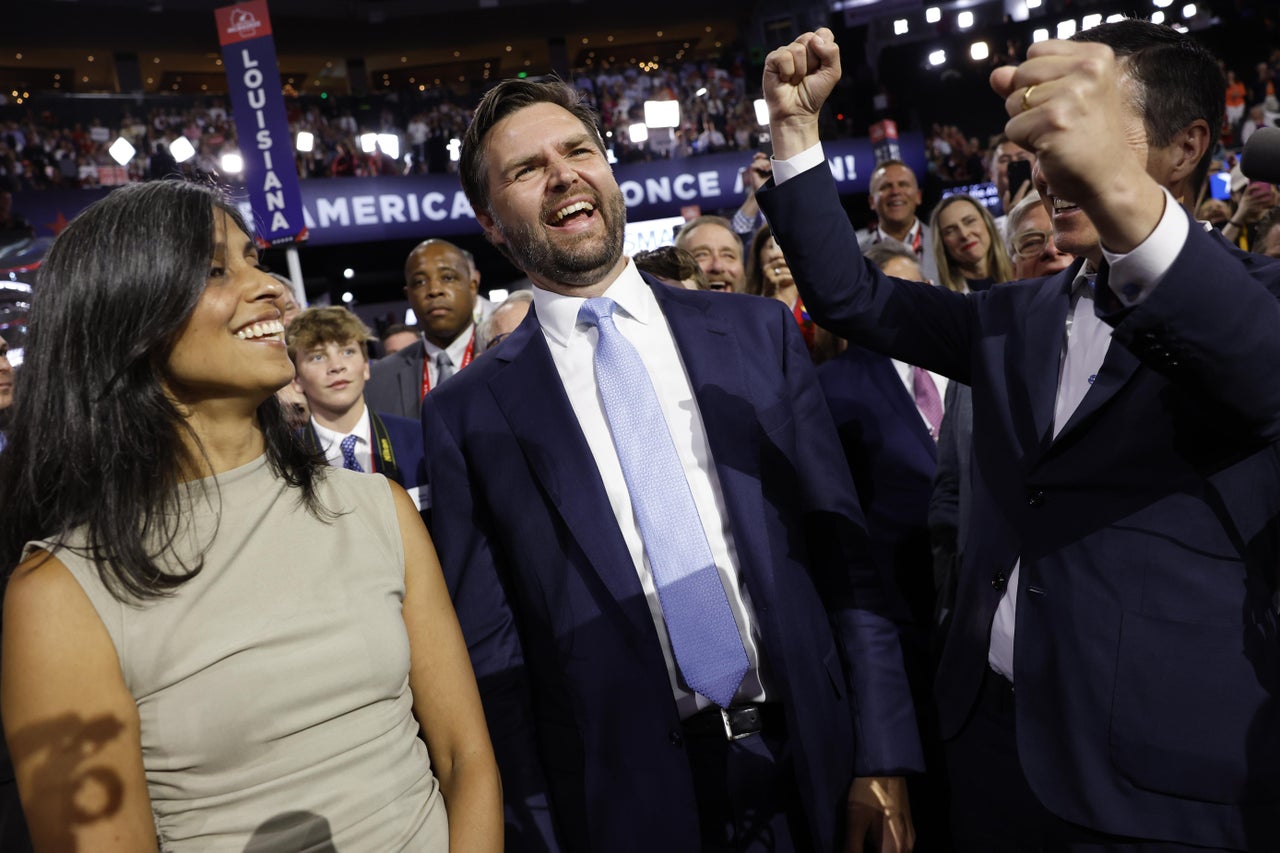Yes, recalling Joan Didion, captured here. I’m not the only one who suspects this is true.
Facebook, Istvan Csicsery-Ronay, friends-only post, 16 Jul 2024: I have spent…
…a lot of time trying to figure out exactly what is inspiring the rabid hatreds of the MAGA right. I entertained the “justified resentment of the rural left-behinds” hypothesis. I entertained the “fear of racial and gender replacement” hypothesis. I entertained the “cult group hypnosis” hypothesis. And others. None of them seemed adequate. Now, after a decade of watching this bloodthirtsy, hypocritical political sadism I’ve come to believe that underlying it all is something I’ve never allowed myself to entertain before about any group. Here it is: the MAGA movement is driven by the need of a large population of Americans to hide their own actually-existing depravity — from others and themselves. Not the spiritual kind, but real crimes. How else explain that MAGATs attribute every crime, perversion, abuse of power, act of bad faith, lying, cheating, and sadistic violence to their “enemies,” while the police records, court filings, and neutral investigations show that the vast majority of the actual instances of those things is on right-wing “conservatives.” Pedophilia — compare the instances of sexual predation, sexual abuse of children, and child porn. Voter fraud – the vast majority of cases have been by Republicans. Sadistic misogyny. Persecution of gays by closeted preachers and politicians. Stigmatization of sexual freedom by swingers behind closed doors. Theft by churches, wage-thieving businesses, sweetheart deals and kickbacks. Violence against pro-choice people by killers. Hatred of laws and norms as conspiratorial oppression by the “deep” state, by people who have enjoyed breaking laws and getting away with it and by harming other people with impunity. Hostility to taxes by people who cheat others habitually, to social justice by people who enjoy seeing harm done. The old evangelicalism of Jonathan Edwards stressed the sin of the people, sinners in the hands of an angry God. The new evangelicalism sees sin only in others. So I can’t help an almost reflexive response when I hear someone spewing MAGA hatred: “you’ve got bodies in your basement and my fondest wish is for your crimes to come to light.” That’s not a healthy political attitude, but I don’t feel like I have a choice. And I guess that’s my answer to my old question about what’s the benefit of projection for the projectors. On the political level they’re not just deflecting bad thoughts, but actual, concrete, bona fide crimes.
(Never met Istvan; I know him through his book The Seven Beauties of Science Fiction.)
\\
It’s such a good story, though; attracts voters who are terribly, terribly frightened of the big bad world out there.

Vox, 16 Jul 2024: The crime wave is over but Republicans can’t let go, subtitled “The GOP is still pretending that crime is spiraling out of control.”
While there was indeed a rise in crime during the pandemic, recent data has shown that crime is declining nationwide. According to the FBI, murder is down 26 percent and robberies have declined by 18 percent in the first three months of 2024 compared to the same time last year. That didn’t stop Republican speakers throughout the night from singling out incidents of heinous crimes and drug overdoses to conjure up an image of lawlessness and disorder.
So why are Republicans plowing ahead with their “Make America Safe Again” messaging despite data that shows America is already getting safer? The answer is simple: Most Americans believe that crime is getting worse, so it’s not a particularly tough message to sell.
The convention made clear that Republicans are running yet another law-and-order campaign, drumming up fear among voters by leaning on racist tropes and dog whistles. Their insistence that cities are crime-ridden, though, is not only a means to spark fear in voters; it’s also a window into how they will approach public safety legislation if Donald Trump wins in November.
With examples of measures in various states to implement ever harsher punitive measures. Where did we just hear that…?
\\\
Republicans prefer politicians who are celebrities, for one reason or another; Trump’s pick of J.D. Vance fits the pattern. Vance published a bestselling book back in 2016 called Hillbilly Elegy: A Memoir of a Family and Culture in Crisis, which was initially very well-received, though its reputation seemed to tarnish over the years. That’s all I know about it, other than the obvious description: it supposedly analyzes why poor white working-class folks, in the Appalachian states, feel disrespected. But that was only my impression. Two retrospective pieces about the book have appeared this week. Let’s see what they have to say.
First,

LA Times, Lorraine Berry, 15 July 2024: Opinion: J.D. Vance’s book ‘Hillbilly Elegy’ was a con job. Don’t let it slide
It opens:
The selection of J.D. Vance on Monday as Donald Trump’s running mate is a direct result of the political media’s failure to understand class in America. For his 2016 memoir, “Hillbilly Elegy,” Vance was venerated by many journalists and book critics as a powerful voice representing long-overlooked Americans. But he’s no working-class hero.
Vance portrayed this group — 35% of Americans, by the way — as tragic victims of alcoholism, drug abuse, laziness and their own self-destructive moral failings. Journalists ran with that, bringing their own stereotypes to depict the working class as angry, uneducated white men driven by economic insecurity and racist nostalgia to support Trump’s retrogressive campaign.
Pause right here. It’s long been known that conservatives, in essence, blame victims. If poor people are poor, it’s because they’re dissolute, or lazy, or drunks, or don’t know God, or whatever. (And if women get raped…. similar ideas.) Whereas studies by sociologists and others show this simply isn’t true. Homeless people are victims of circumstances, mostly; if they’re druggies, it’s because they’re homeless, not vice versa. You will never convince conservatives of this; they don’t do evidence. This same body of evidence explains why the so-called ‘universal basic income’ is *not* a license toward indolence; most people *want* to be busy, and useful to someone, anyone — that’s human nature — and will do so given a leg up. Conservatives don’t believe that evidence either; their story is so much simpler.
Lauded by David Brooks as the interpreter of some mythical “working-class honor code” that could illuminate the motivations of the core Trump voter, Vance was praised in reviews in the New York Times, the Washington Post and a host of other publications, and he became the go-to guy on the working-class perspective. CNN hired him as a political pundit.
This was no better than the “parachute journalism” of upper-middle-class reporters who would visit an Appalachian tavern for one afternoon and then presume to tell the nation what the working class was thinking.
And so on. I’m not going to spend the time to understand the book and all the reactions to it; I’m just sampling current commentary. Here’s one more.
\

Laura Miller, Slate, 16 July 2024: Trump’s VP Pick Wrote a Bestselling Memoir. Rereading It Now Is Astonishing., subtitled “Was Hillbilly Elegy ever good, or did J.D. Vance snow us?”
Slate’s homepage link for this still has this title: “It Was One of the Best Books of 2016. Then Its Author Abandoned Every Value It Expressed.” Miller begins,
What I’ve always remembered most clearly from J.D. Vance’s bestselling memoir, 2016’s Hillbilly Elegy, is its scorching descriptions of the lies that the working-class rural white Americans he grew up among tell themselves. An account of his chaotic and often perilous upbringing among people with roots in Appalachia, and of his seemingly miraculous climb out of that morass and into Yale Law School, Vance’s book hit at the most opportune moment. Many middle-class Americans were reeling after the election of Donald Trump and wanted some insight into what had possessed people like Vance’s relatives and sometime neighbors to vote for him. (But not Vance himself, of course! In 2018 he wrote an afterword to Hillbilly Elegy noting that he’d voted third party in 2016.)
Now that Vance stands a good chance of becoming vice president, the saga of his journey out of poverty, violence, and despair makes an even more dramatic story, though not one, I suspect, Vance would presently care to revisit. All the qualities that made Hillbilly Elegy one of the best books I read in 2016—its brutal honesty, its challenges to the self-delusional and self-defeating aspects of hillbilly culture, its mournful ambivalence about the identity he’s only partially left behind—have been shamelessly jettisoned by Vance for the sake of his political career. Not least of these is the belief that Donald Trump could become “America’s Hitler” and is a supplier of “cultural heroin”—the latter no small jab from a man whose mother’s narcotics abuse tore up his childhood.
And she finishes:
Vance’s political supporters still approach Vance with copies of Hillbilly Elegy, requesting his autograph, but you have to wonder if they’ve actually read it lately. Much like the entire Republican Party, Vance has spent the past eight years not only abandoning but methodically repudiating the values he once espoused, signing on to Trump’s politics of grievance, paranoia, and self-pity, the easy excuses in “blaming Obama or Bush” that he once condemned. He has set aside his former disdain for “elites” and submitted to kissing the ring of a wealthy reality TV star from New York City. And all complexity and ambivalence has disappeared from his rhetoric, replaced by peacocking certainty that he, and Trump, is the answer to America’s problems. Like those old neighbors of his who griped about welfare queens, Vance has gotten very comfortable with his own hypocrisy. After all, he learned it from experts.
More tomorrow.






